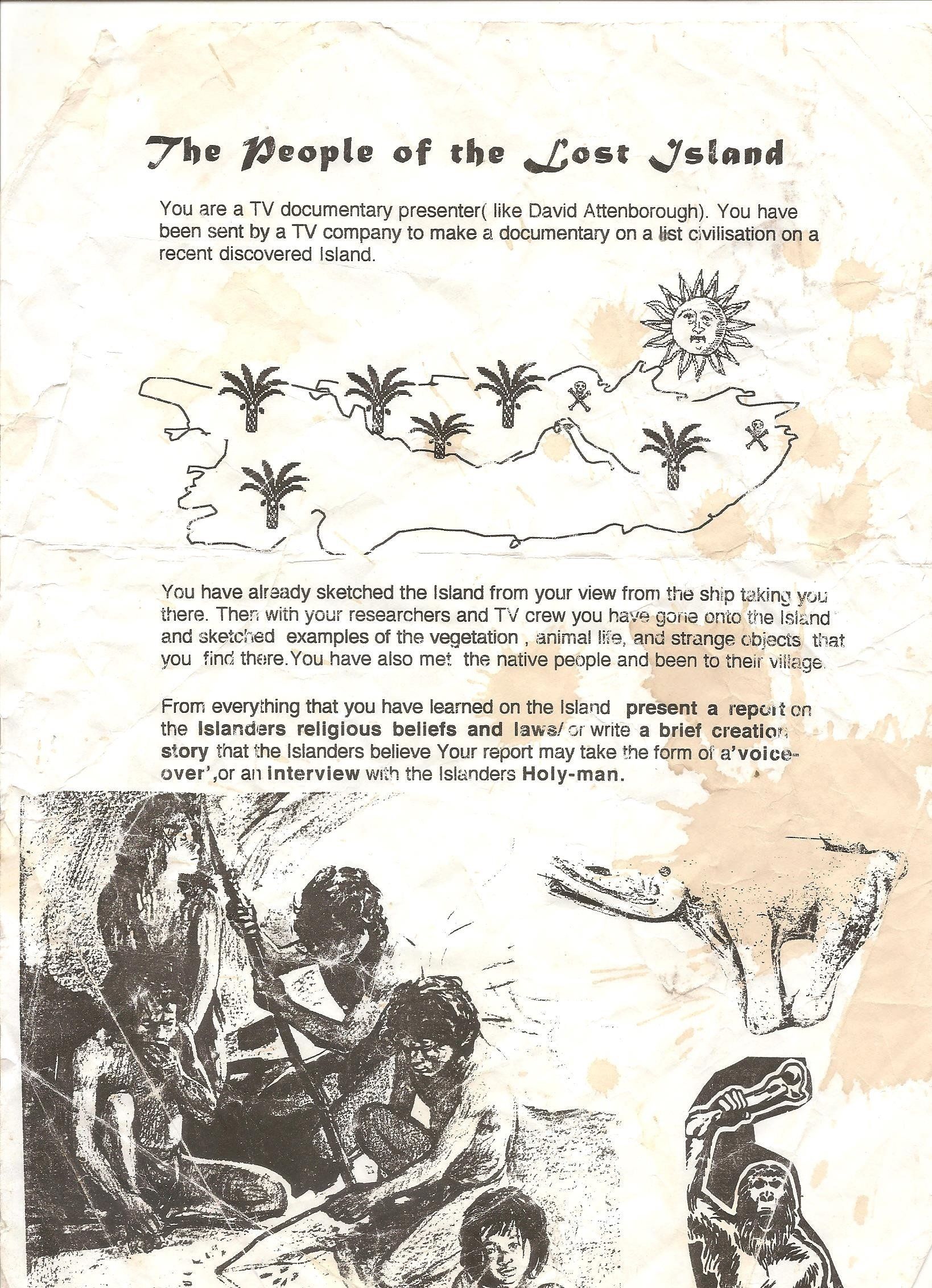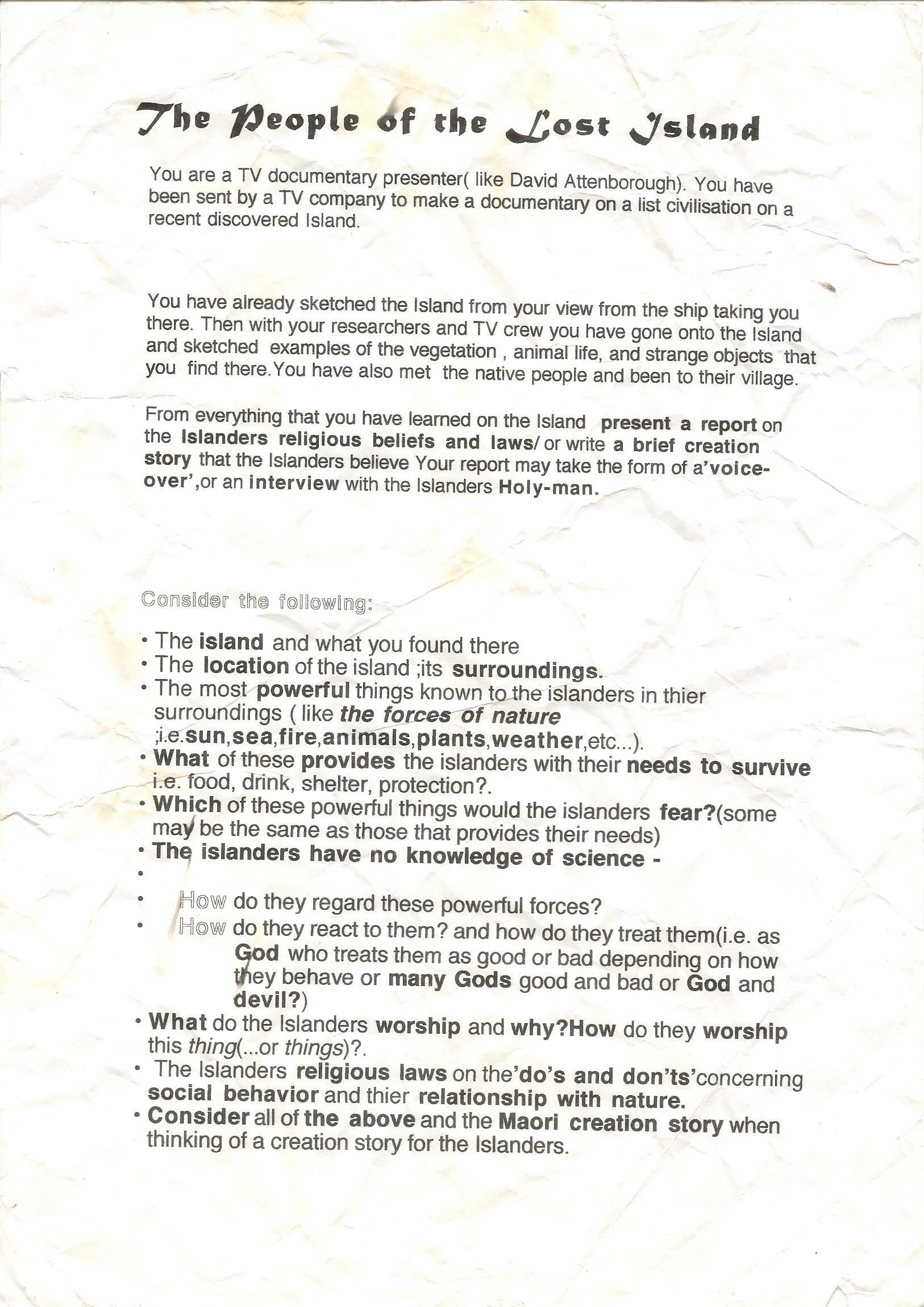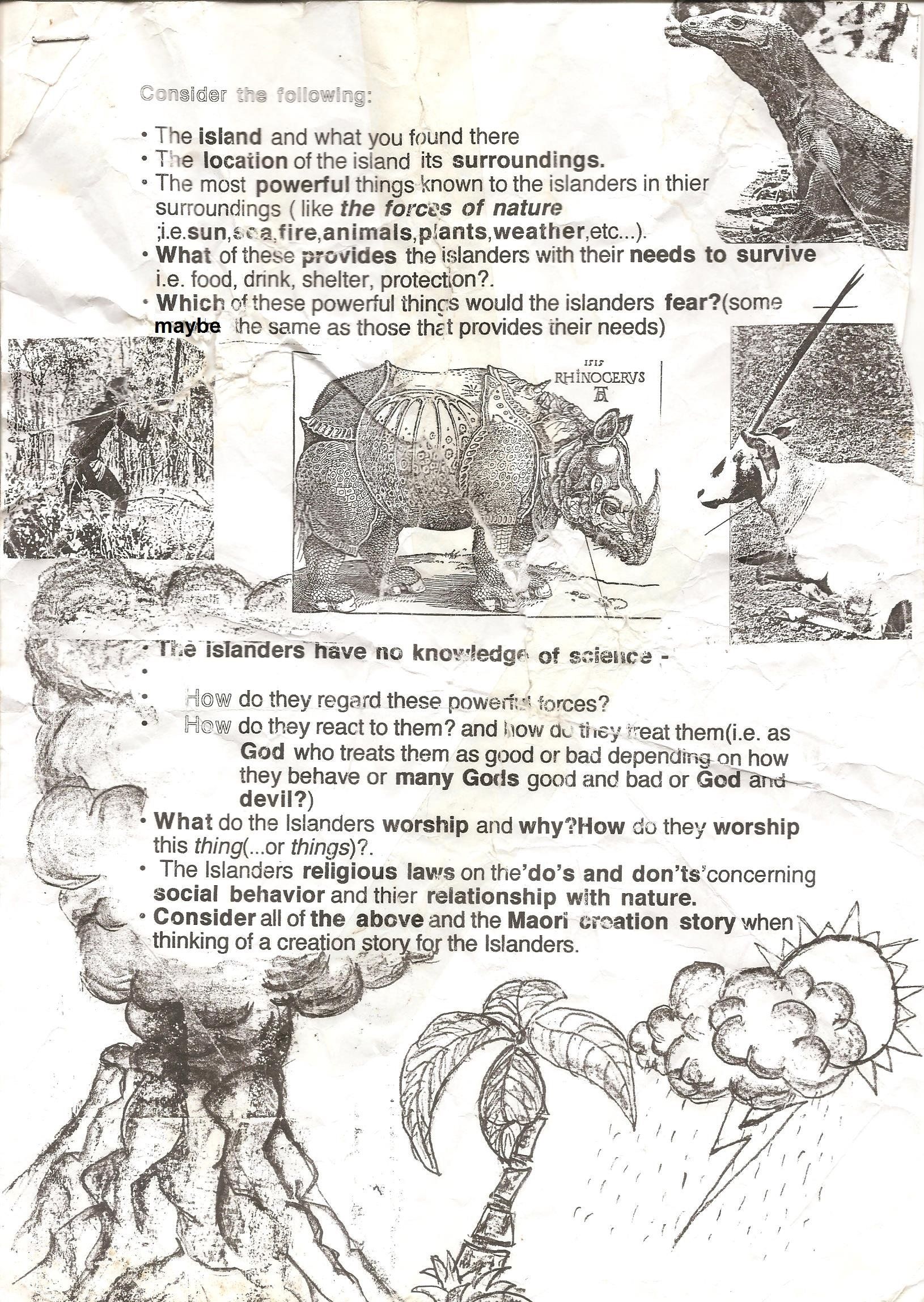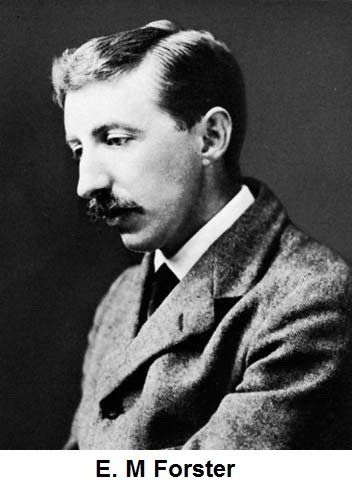THE 'LET'S TALK RELIGION' YOUTUBE CHANNEL.
I must say, hats off to this chap - Philip (that may not be the spelling that he uses (?)) - for this excellent series, which presents a complex and very diverse subject matter in a way that is entirely even-handed and informative; presented intelligently, but engagingly and easily accessible.
This is his short introduction video, but I've looked at others in the series and they're great viewing.
This is the kind of material that should be used in the teaching of Religious Studies.

HOW I LEARNED ABOUT RELIGION VIA MODERN CULTURE
The culture and the superstars of the 1960s and 70s inspired young people to think, question, and take an interest in life's deepest questions...
I've never belonged to any religion - not even in childhood: my parent's weren't fussed about religion one way or another; my primary school school referred to religion sparingly, and in a nice way: The Lord's Prayer every morning (which got us all sitting quietly, settled and focussed on work (looking back, I can see that was a great teaching strategy...!); and prayers when something terrible had happened in the world: which made us feel helpful and empowered; made us feel that we were doing SOMETHING to at least express our concern - and weren't totally helpless... That too was a good teaching strategy...
My high school education didn't bother with religion at all...
So I was completely free to take or leave the study of religion and all its many associated subject areas: philosophy; metaphysics; spirituality; mysticism; Gnosticism; history; anthropology; tradition; customs... etc., etc... (A lot of people don't realise that 'religion' is just one part of a whole complex and fascinating range of interconnected subjects...)
But I was always inherently, naturally fascinated by these area of study...
Fortunately, I grew up at a time when they (and all other areas of importance to humanity) were deeply explored, expressed and and discussed by the emerging culture of the times - in free and thoughtful, but also entertaining ways...
As a result, I was able to fully indulge my interest, and learn things, and be inspired to think and question, by the education that my culture was supplying... And my formal education wasn't...
So, if you ever wondered why I became so learned in these subjects - it's down to being inspired by my cultural education: very much including these guys...
Wisdom like this is why Ali and George Harrison are my two great heroes and influences in life...
(Footnote: the graphic describes George Harrison as 'ex-Beatle'... but he was still a Beatle when he made the quote that I have paraphrased.)
RELIGIOUS STUDIES: WHY THE WINTER SOLSTICE AND OTHER PAGAN FESTIVALS WERE ASSIMILATED INTO CHRISTIANITY...
Jethro Tull. 'Ring Out Solstice Bells'. (Single from 1976).
December 21st. is the date of the annual Winter Solstice (I must qualify that by adding: in the northern hemisphere) - and Tull's 'Ring Out Solstice Bells' - with this promo video - are a 'Chronicles' seasonal tradition: posted EVERY Winter
Solstice - and never gets old...
The Winter Solstice celebration and traditions (like other pre-Christianity festivals) were assimilated into Christianity as part of the process that the early missionaries used when persuading pagan tribes away from understanding and worshiping God in the form of idols carved from lumps of stone or wood (as they satirically put it: you might as well worship your table: it's made from the same tree as your idol...* LOL..! ) and towards a more sophisticated and abstract, incorporeal idea of the supreme power in existence.
This acceptance of an incorporeal idea of God - and of Jesus as God come to Earth to experience life as it is experienced by humanity - and to give humanity new guidance and direction, was all that was required of these pagan converts: the monks were not kill-joys, and had no problem with the erstwhile pagan peoples carrying on their age-old festivals and traditions: just 'Christianise' them: cut out all the animal and human sacrifice (it doesn't please God - and anyway - God's own sacrifice was the ultimate: no other sacrifice was ever again required); and put Christian meanings on the symbols... And carry on with the festivities...
(This, btw, explains why pagan festivals are celebrated by Christians; contrary to rhetoric peddled by some, it's not a case Christianity getting its dates wrong or plagiarising: it was purely a matter of the festivals being not really important: the teaching alone is important...
*Paraphrased from: 'The Ecclesiastical History of the English People' (Latin: Historia ecclesiastica gentis Anglorum); The Venerable Bede, circa 731 AD / CE).
DAVID MITCHELL'S (UK comedy actor) REASONABLE CONSIDERATION OF THEISM
I like this guy. His points of view are similar to my own.. Oh, and he's also genuinely very funny too - in his 'day job'. 😏
David Mitchell is agnostic: in the current world of blabbering, woefully ill-informed, dogmatic 'I'm an atheist' celebrities even that more reasonable stance is unusual.
In this short clip, David Mitchell outlines his agnostic worldview - and his criticism of dogmatic, fanatic atheists.
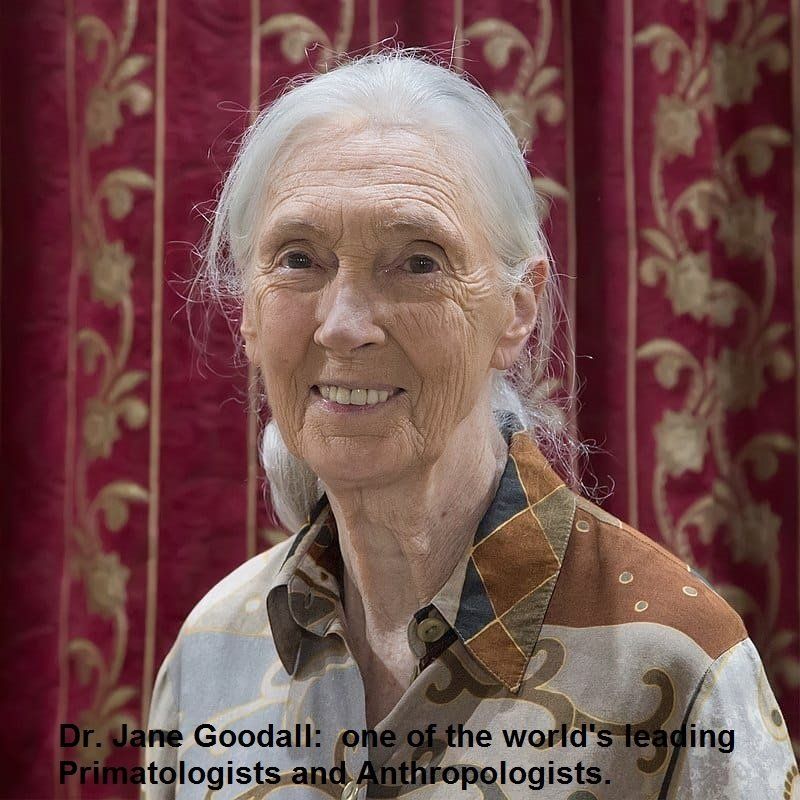
RELIGIOUS STUDIES: A PERSPECTIVE ON BELIEF IN GOD:
Dr. Jane Goodall: one of the world's leading Primatologists and Anthropologists.
When asked if she believes in God, Goodall said in September 2010:
"I don't have any idea of who or what God is. But I do believe in some great spiritual power. I feel it particularly when I'm out in nature. It's just something that's bigger and stronger than what I am or what anybody is. I feel it. And it's enough for me."
(Excerpt from Wikipedia).
(I found this picture of Dr. Goodall online. My acknowledgement and thanks to the owner of this picture (identity unknown to me).
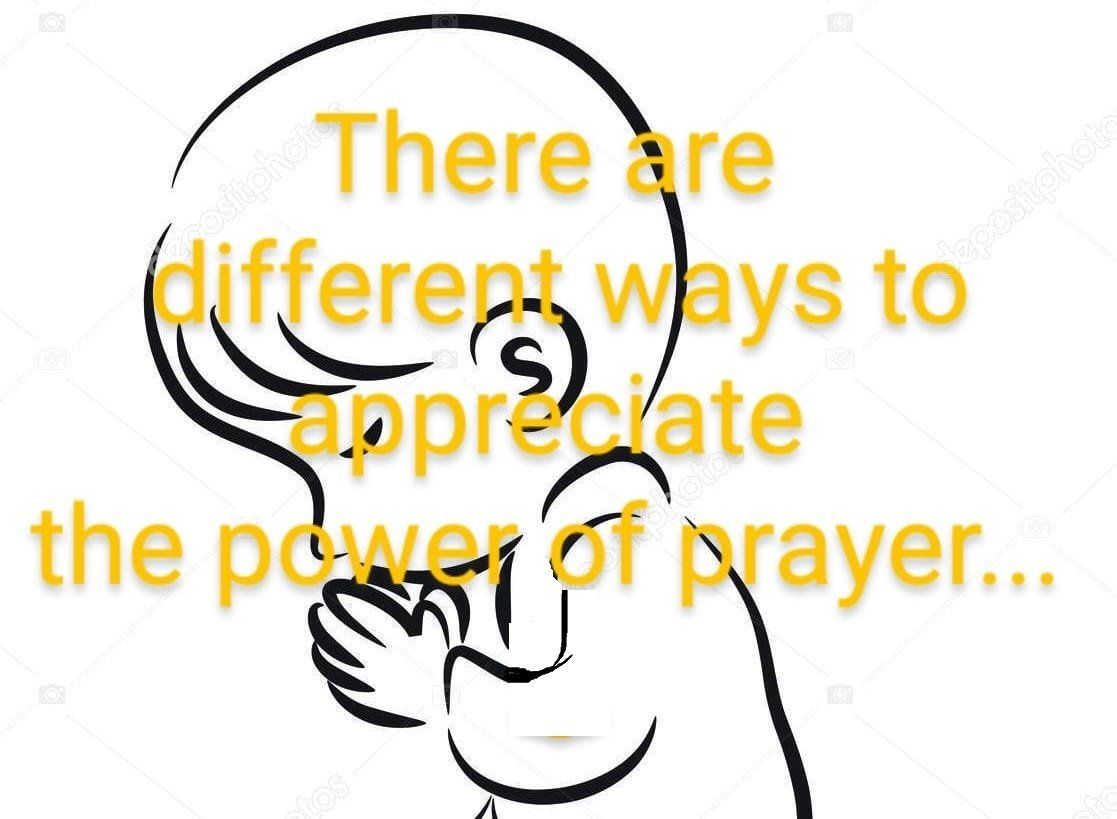
EVEN AS A KID FROM A NON-RELIGIOUS FAMILY AND ONLY TOKEN RELIGIOUS SCHOOLING - I REALISED THAT PRAYER IS POWERFUL...
In 1968, I was 9 / 10 years old...
Bad things happened in the world that year.
When these bad things happened, they were not ignored at school; we had kindly teachers, who would explain the events’ importance in soft tones and in simple, but effective terms.
We were talked through the assassinations of Robert Kennedy and Dr. Martin Luther King Jr., and the Czechoslovakia crisis (when troops and tanks from the Soviet Union invaded communist Czechoslovakia, to crush the freedom movement there).
If, as with these events, suffering and/or death had occurred – and kids always find that difficult to grasp and are desperate to help, but are helpless to do so – then after the talk our teachers, who were never overtly religious, nor was our education, would ask us to close our eyes and join them in a prayer for those who had suffered. In that moment we all felt, individually and as a class, that we had done something: expressed our empathy and sent out our care, love and our hope. We no longer felt helpless…
I’m not a member of any faith and never have been, but it helped us, I know that: we felt empowered; that we were not helpless; that we could express our love and our humanity in a meaningful way...
To this day I have difficulty with people who sneer at the act of prayer and scorn it as useless. It is not useless…
(I found this image on Google Images (and cropped it, altered it a little - and added the caption on top). My acknowledgment and thanks to whoever made this image (identity unknown to me). )
(Edited from the 1960s & 70s: Chronicles of a Golden Era article: '1968: Life as an average British kid, stuck in the middle of it all...' This edit: © Copyright MLM Arts 05. 09. 2022)
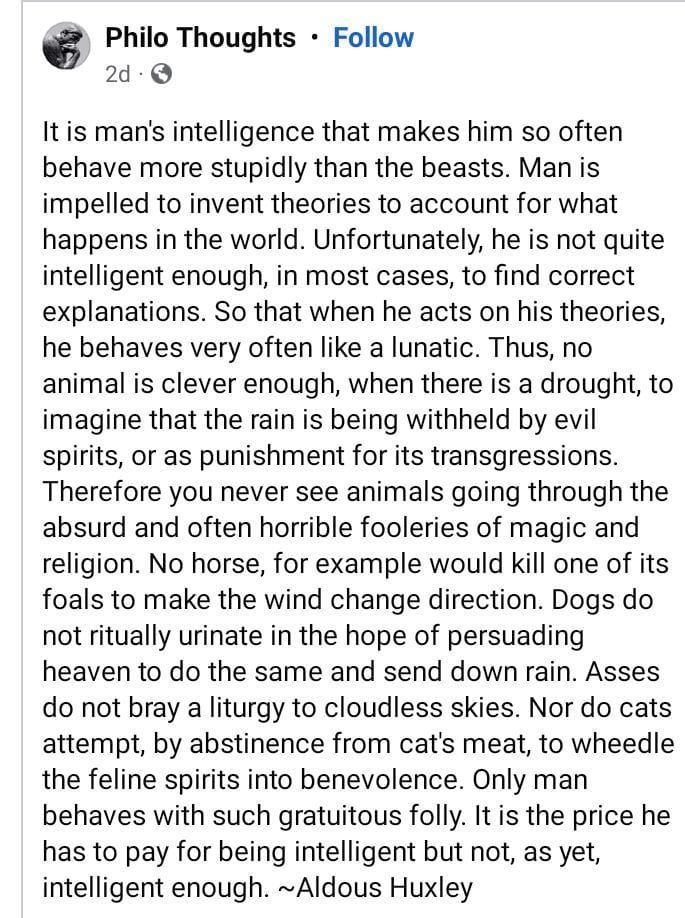
THIS IS THE KIND OF THING THAT MAKES PEOPLE WITH NIAVE IDEAS ABOUT RELIGION THINK THAT THEY ARE EXPERTS ON THE SUBJECT...
But, really, it's a very good discussion point for better explaining the subject at depth...
The modern day social media 'educated' person will read this Aldous Huxley excerpt and think 'Yep. That's religion alright. It's exactly that. Oh how it's held us back...' Blah-blah-blah' - yaketty-yak-yak...
Here we have Aldous Huxley - a great writer; I've read 'Brave New World' - describing some ancient / some pre-historic practices from various religious - but in an isolated way that makes no attempt to put them in their context or to understand them in their context - and even leaves the reader with the idea that these
practices are current...
And he weaves-in an unfavourable comparison between humans and wild animals...
Let's see:
Animals
don't presume that drought is caused by punishment from some divine agency. Humans have considered that possibility - and tried to appease this unseen power...
OK - so, in prehistoric times, or even more recently than that among peoples still living that kind of lifestyle, people did not just accept drought and curl up and die - they recognised that there is a power far greater than themselves that could destroy them.
Their first instinct was to presume that this power was aware and intelligent; they could not defeat it, so they attempted to communicate with it and appease it...
What did wild animals do? They curled up and died...
Now, you see, these human beings were right: there is a power far greater than they are - that can destroy them... And they were right to try to work out what that is...
Time moves on...
Human beings - thousands of years ago - learn that they can control their environment to a great extent: at least in building reservoirs, aqueducts, irrigation systems - and wind mills and sailing ships... But they are still religious - only now in a different way: because religion is a living, developing area of study
and human thought...
Human beings still believe that there is a far greater power than them - and that it can destroy them... But they can also make use of it... And they are still right about that...
Meanwhile - after this passage of time, what do animals do during drought...? They curl up... But (hurrah!) to they don't die - because human beings - having had the intelligence to wonder about this greater, unseen power, and to try to understand it - can now use it / or its effects to conserve water - AND - we share it with animals and save them too...
Time moves on...
People are still religious - but (the prevailing thinking is) no longer think that weather conditions are caused by this divine, unseen power (st least not in any personal, selective, punitive way) - they now understand that this power created the Earth, the Sun - and the whole Universe - and it runs according to laws: weather is just weather - but human beings can combat its effects - and even make very good use of it's effects...
And human beings
are still right to believe that... They're still trying to get closer to understanding what this creative power is, and about the universe that it has created - but they're right about what they've learned so far...
And what do animals do about the weather after all these thousands of years...? They still curl up... But the ones lucky enough to live around humans will be OK - because the humans better understand their environment and will protect them...
How did this happen...? It's all because of way back when humanity was first aware of a power that was causing climactic events - and wondered about it and, slowly, slowly - set about finding out about it...
The peoples who are / were still at the rituals to appease this power stage? No problem - their brothers and sisters who have this figured out will help them too...
And that, folks, is not a bad little overview of the development of religion - from wanting to and trying to understand natural phenomena by first being aware - and presuming a power that was also aware and could be communicated with... To still being aware of that power - and still wondering what it is... But knowing that understanding what this power created (the Earth and the Universe) is not about ritual - it's about realising our place and importance within it...
(This graphic is a screen shot from the Facebook page called Philo Thoughts. My acknowledgements and thanks to that that page.)
Textual content: ©Copyright: MLM Arts26. 06. 2023. Edited and re-posted: 28. 06. 2023
A WESTERN VIEW OF HINDU RELIGION
E. M Forster (on his understanding of and respect for Hindu religion - as against the increasingly secular West, in war-time London, 1940):
'...For you cannot imagine how much we... [the West] are in need of inspiration, of spirituality, of something that will deliver us from the tyranny of the body - politic. ...we have... an inner war, a struggle for truer values...'
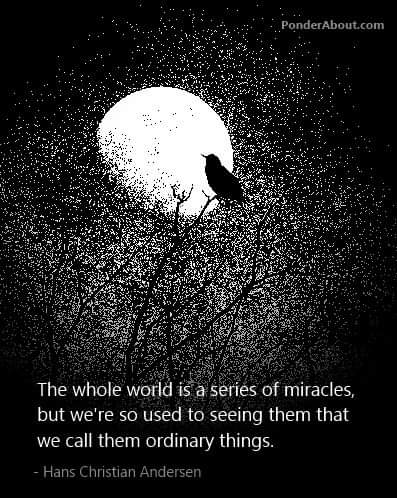
THE DOGMA OF SCIENTIFIC MATERIALISM...
It's a commonly blustered-out line these days;
'Science [by which those who say this mean, not Science per se, but the brute simplicity of the Materialism paradigm of Science] can explain pretty much everything thing now...'
From that, they bluster the frankly ridiculous 'God of the gaps' retort to theists: which says that theists can only use God an an explanation for things that (Materialist) Science can't explain...
It's absurd, of course: it's saying that, by using the only property that we have that can look for intelligibility - our intelligence - to detect intelligibility - and recognise it as intelligible - we must therefore conclude that the only explanation for it that can be DISCOUNTED is... intelligence....
And that theists are left with the rest to call the work of God: the work of intelligence...
'The God of the gaps' bluster really is as absurd as that...
Nope. Actually, Science can explain everything except... Everything...
The attitude of Science today can be summed up by, Terence McKenna put it: 'Give us one free miracle and we'll explain the rest'...
The 'one free miracle' being the very existence of everything: existence itself...
(I found this image online. My acknowledgement and thanks to whoever made this image; it is stamped 'Ponder About.com')
RELIGIOUS STUDIES
You know, a LOT of Rock and Roll / Rock music and artists - particularly from the roots of Rock and Roll in the USA - was influenced and inspired by deeply Christian Gospel and Blues players...
Sister Rosetta Tharpe. 'Up Above My Head'' (First recorded in 193...(???) I think... )
There's a running gag / urban legend, with different versions, about Jimi Hendrix being asked what it's like being the world's greatest guitarist, and him replying: 'I don't know; ask... (Rory Gallagher; Eric Clapton - etc... depends which version you hear... )
But this is a guitarist who really was as favourite of Jimi Hendrix - and in fact, an influence on his own playing: Sister Rosetta Tharpe: born, 1915; active in performing music (in church; possibly just singing, originally), since 1919.
Now, if church services were more like THIS (and this dates back to the 1960s, I think, but Sister Rosetta had been performing music in church for a long time before that) - maybe attendances wouldn't have dwindled over the decades...
This is (I think anyway) an absolute WOW...!

DEBUNKING ANOTHER ANTI-RELIGION PARLOUR TRICK
Debunking the anti-religion jibe: 'Isn't it convenient that people born in [whichever] country are born into the right religion'. Nope. Very few people in the world were born in the country where the religion of the country of their birth originated.
Abraham and his followers, the Hebrews, were from Mesopotamia (modern day Iraq), and founded the monotheist religions of:
Judaism: Began with Moses and the Mosaic Law. Moses was a Hebrew, born in Egypt.
Christianity: Jesus was a Jewish carpenter and itinerant Rabbi. He was born in Judea and raised in Galilee. Christianity began there.
Muhammad (pbuh), was born in Mecca, in what is now Saudi Arabia.
More than half the world's population identify with one or other of these religions - in pretty much every country of the populated world. Therefore, they are obviously NOT 'conveniently' born into the country that worships the right God. 🙄
The polytheism, and idolatry of their ancestors was swept aside by the superior understanding of the divine that is monotheism. And NOT by force of arms - but by the willing conversion of the Roman Empire, and then by missionaries travelling to the tribes around Europe, Africa, and Asia - and the long, slow, extremely perilous process of convincing the tribes that their understanding of the divine was naive, barbaric, and mistaken.
Noone born outside of Iraq, Israel / Palestine, or Saudi Arabia and who is Jewish, Christian, or Muslim, was born in a country that historically or traditionally 'worships the right God'; nope: monotheism - and the understanding of the perceived 'right God' was sent TO them... 🙂
Just another debunking of a familiar anti-religion parlour trick... 😏
(I found this image online. My acknowledgement and thanks to whoever posted it / owns it (identity unknown to me)).
Textual content: © Copyright MLM Arts 27. 10. 2023. Edited and re-posted: 03. 11. 2023
RELIGIOUS STUDIES
WHY IS IT IMPORTANT
WHY SHOULD IT BE TAUGHT IN SCHOOLS
HOW THE WAY THAT IT IS TAUGHT MUST CHANGE...
Religion is a misleading word that is casually used to describe a vast, deep and wonderfully varied range of study areas... I've argued that, really - we need a new word or words to describe what's being studied...
The Quest To Understand The True Essence Of Existence - perhaps...?
Part of the problem with this brutally simplistic current 'understanding' of the subject, based on this casual word 'religion', is that just about everybody THINKS that they know and pretty well understand 'religion' - and make free and loose with sneering condemnation: quoting simplistic, shallow rhetoric and propaganda by celebrities (like Richard Dawkins and Christopher Hichins) who know as little as they do about the subject... When in fact, very few people really know what they are talking about on the subject...
I've studied 'religion' - and all its areas of study to degree level... And I'm still only scratching the surface... And I'm still endlessly fascinated by it...
But teaching religion in schools by simply teaching the beliefs and practices of the main religions, and skating over the main philosophical arguments, is not making the subject deeply relevant and important.
To do that, we must present the reasons WHY the study of religion is relevant and important to students - as part of understanding life...
I finally found a short video that comes close to doing that...
t's the words of George Harrison: a man who lived life to the fullest in every way, and on that journey, learned the wisdom that he now imparts - and lived his life in accordance with it...
George Harrison is the single most influential person in my life...
AN EXPLANATION OF THE EMIR - STEIN ORGANISATION
Emir - Stein is an interfaith group that exists to break
down barriers between peoples and faith groups. It particularly focuses on countering Islamophobia.
I just found this YouTube channel - and I like it a LOT.
RELIGIOUS STUDIES: THE FREE THINKING GOLDEN ERA: THE 1960s & 70s, INSPIRED PEOPLE TO THINK ABOUT THE BIG QUESTIONS - WITHOUT DOGMA...
Ringo Starr's personal Theology...
(Paraphrasing): Interviewer: 'People claim their god is the dominant god...'
Ringo: 'That's people. That's not God. People / religions have their own ideas about that; but it's all
one; we are all one...'
We've had The Beatles' George Harrison; George and John Lennon - and now we have Ringo Starr talking about personal ideas about religion, spirituality, and philosophy...
I must admit, I didn't associate Ringo with particularly deep ideas on this subject, but how wrong I was... This is on a par with George, I reckon...
